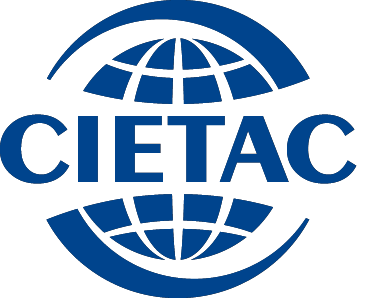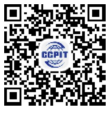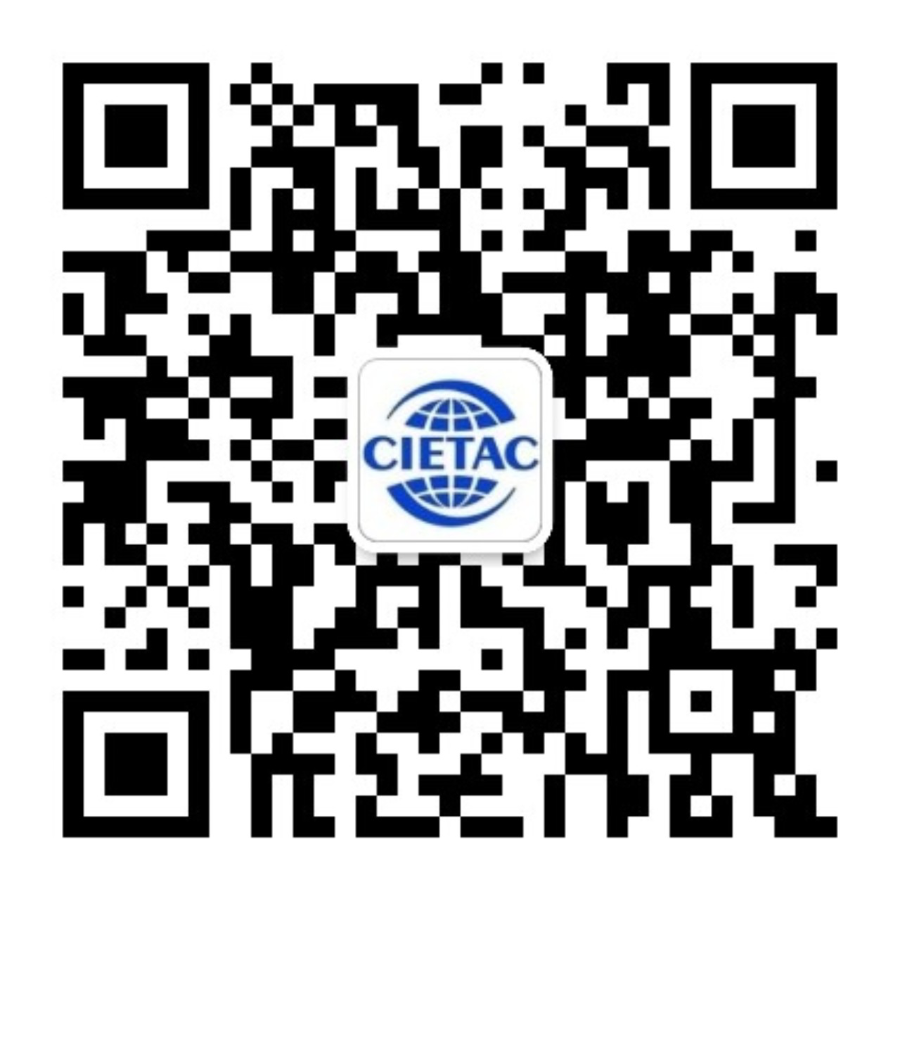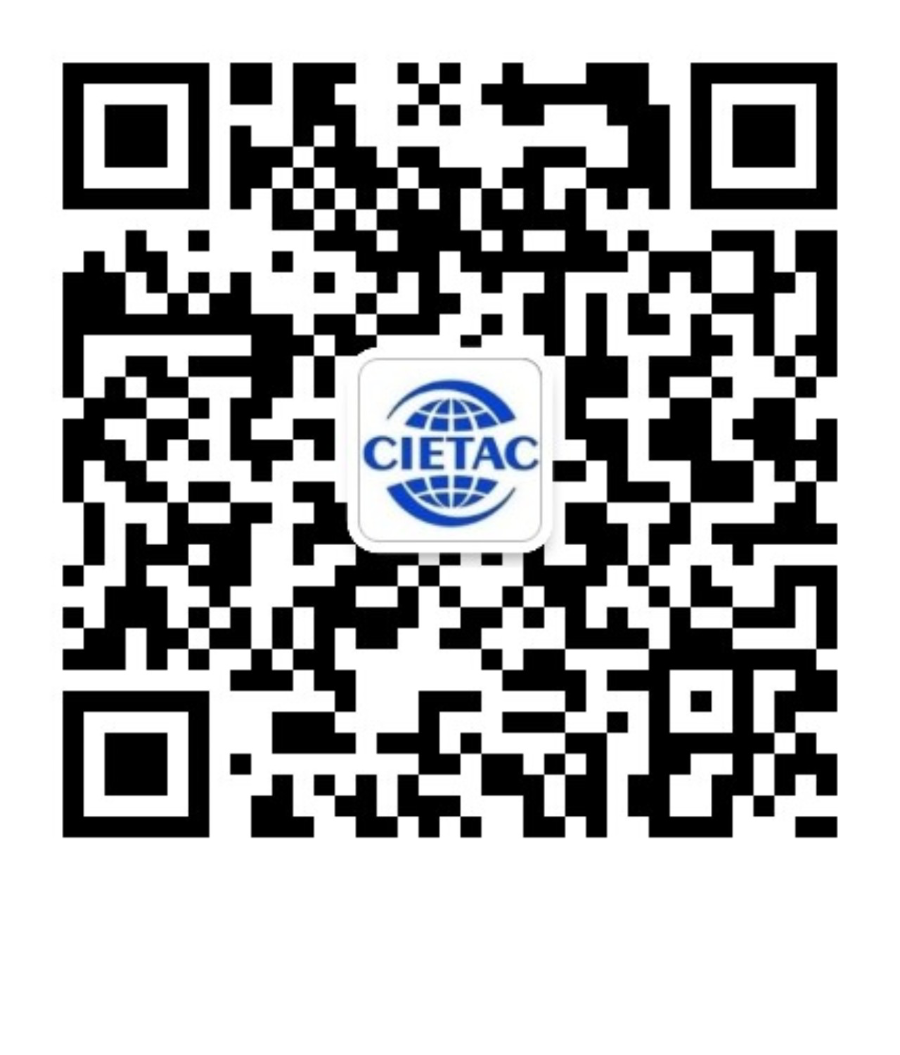On December 27th, 2024, the 19th Cross-Strait Economic and Trade Arbitration Symposium, co-hosted by the China International Economic and Trade Arbitration Commission (CIETAC) and the Arbitration Association of Chinese Taipei (TAIWAN CAA) , and co-organized by the Arbitration Center Across the Straits and the China Council for the Promotion of International Trade (CCPIT) Ningbo Committee (CCPIT Ningbo), was successfully held in Ningbo, Zhejiang. Yu Jianlong, Vice Chairman of CCPIT and Vice Chairman of CIETAC, Wu Yongqian, Chairman of TAIWAN CAA , and Ye Miao, Member of the Party Group of Ningbo Municipal Government and Director of Ningbo Economic and Technological Development Zone , addressed the opening ceremony. Wang Chengjie, Vice Chairman and Secretary General of CIETAC, presided over the opening ceremony. The symposium was also attended by Xi Xiangyang, Judge of the Fourth Civil Division of the Supreme People's Court and Judge of the International Commercial Court , Sun Ting, Second-Level Researcher of Taiwan Affairs Office of the State Council , Xia Qun, Vice Chairman of CCPIT Ningbo , Li Nianzu, Honorary Chairman of TAIWAN CAA , and Li Fudian, Honorary Chairman of TAIWAN CAA , and brought together nearly 200 representatives from arbitration, legal, industrial and commercial circles and arbitration institutions from both sides of the Strait.

(Symposium site)

(Yu Jianlong, Vice Chairman of CCPIT and Vice Chairman of CIETAC, delivered remarks at the opening ceremony)
In his opening speech, Vice Chairman Yu Jianlong said that effectively preventing and properly resolving cross-Strait economic and trade disputes is an important guarantee for the healthy development of cross-Strait economic and trade relations. CIETAC and TAIWAN CAA are committed to equally protecting the legitimate rights and interests of the parties through arbitration, and stand as the professional and widely recognized arbitration institutions with important influence and credibility on both sides of the Strait. For a long time, the two institutions have maintained friendly cooperation and established a communication mechanism for mutual recommendation of cross-Strait arbitrators. Since 2001, the two institutions have held 18 consecutive Cross-Strait Economic and Trade Arbitration Symposiums and other activities, which have effectively escorting cross-Strait economic and trade exchanges. He hoped that the arbitration community from both sides of the Strait will persist in deepening cooperation and work together to promote the development of cross-Strait arbitration, adhere to innovation and pioneering to build a new highland of arbitration service side by side, and uphold independence and impartiality to jointly enhance the credibility of cross-Strait arbitration.
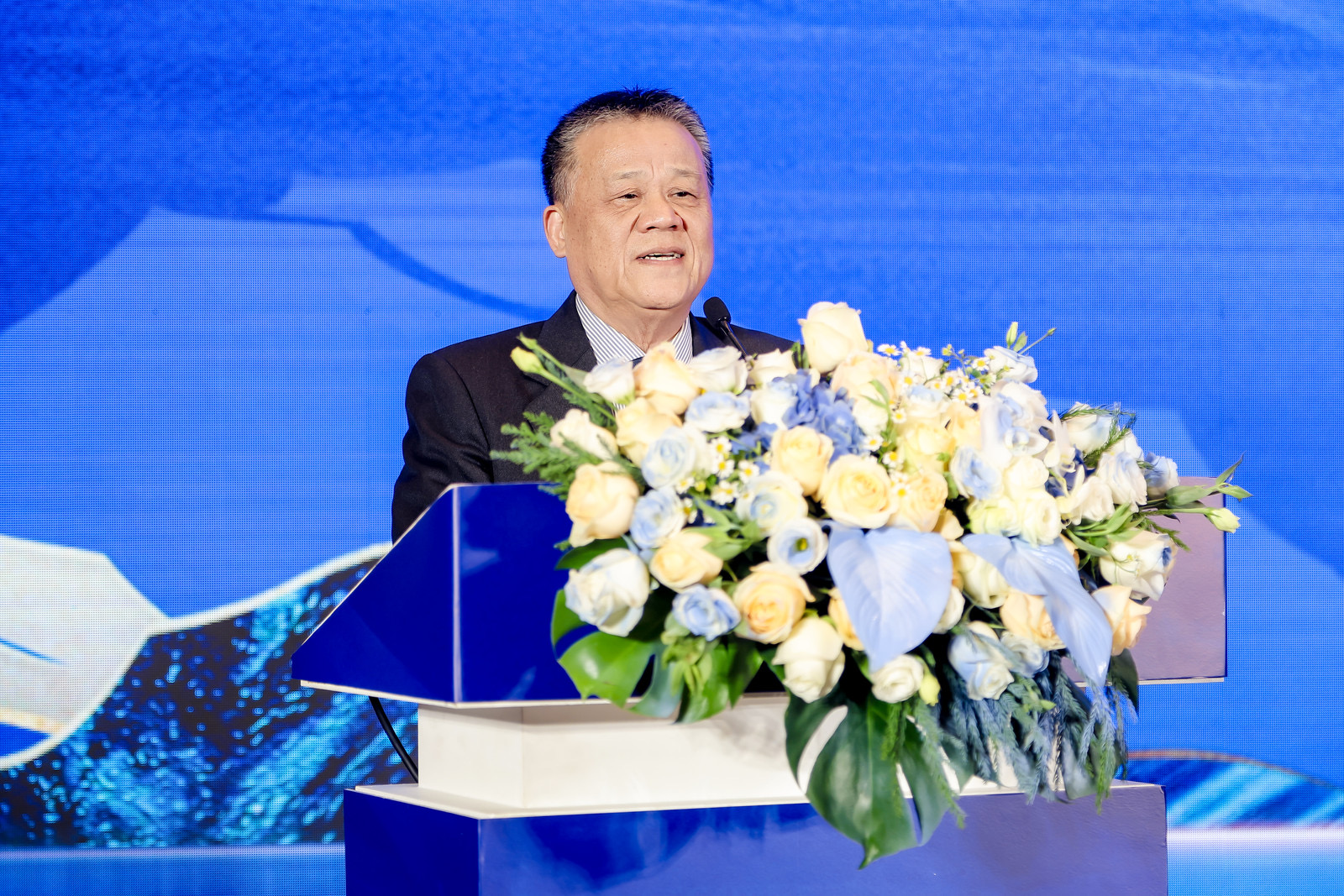
(Wu Yongqian, Chairman of TAIWAN CAA, delivered a speech at the opening ceremony)
In his speech, Chairman Wu Yongqian pointed out that Ningbo is the region with the largest concentration of Taiwanese investment in Zhejiang Province. Holding the 19th Cross-Strait Economic and Trade Arbitration Symposium in Ningbo is right on time and offers an important communication and cooperation opportunity for legal and business professionals from both sides of the Strait. TAIWAN CAA is willing to consolidate and expand the cooperation achievements accumulated with CIETAC for more than 20 years, and make greater efforts to promote professional exchanges and talent cultivation for cross-Strait arbitration, so as to jointly facilitate arbitration to play a greater role in cross-Strait economic and trade exchanges.
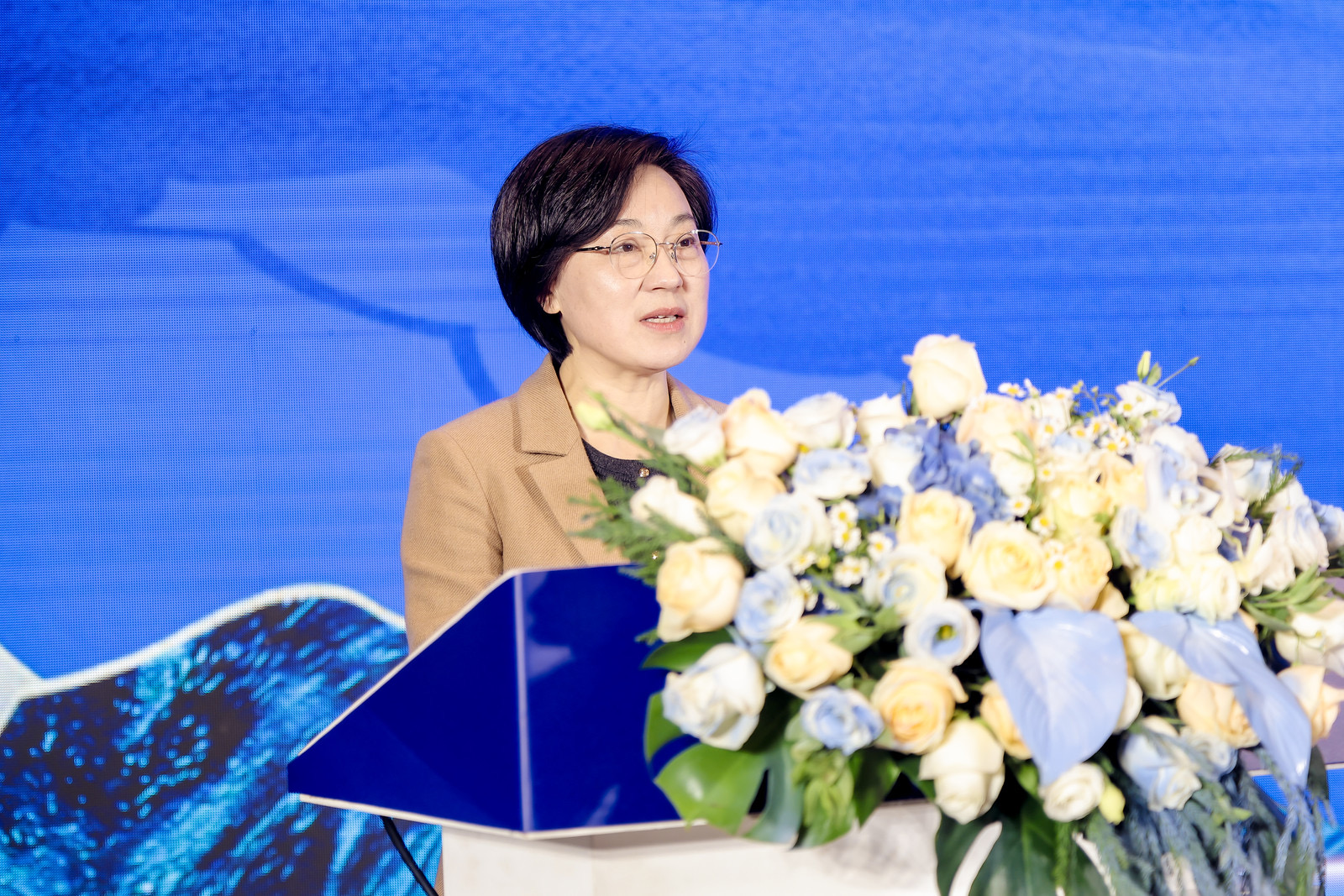
(Ye Miao, Member of the Party Group of Ningbo Municipal Government and Director of Ningbo Economic and Technological Development Zone, delivered a speech at the opening ceremony)
In her speech, Director Ye Miao said that Ningbo, as a big foreign trade city and an open city, faces the Taiwan island across the sea. The two places are geographically close, culturally affiliated and economically interconnected, with a solid foundation for economic, trade and cultural cooperation. As an important platform for cross-Strait economic, trade and cultural exchanges and cooperation, the symposium is of great significance in promoting the integration of cross-Strait economic and trade rules and mechanisms, and fostering the stable and healthy development of cross-Strait economic and trade relations. It is hoped that this symposium will play as an opportunity to further deepen pragmatic cooperation and build Ningbo into a regional model for cross-Strait economic and trade arbitration cooperation.
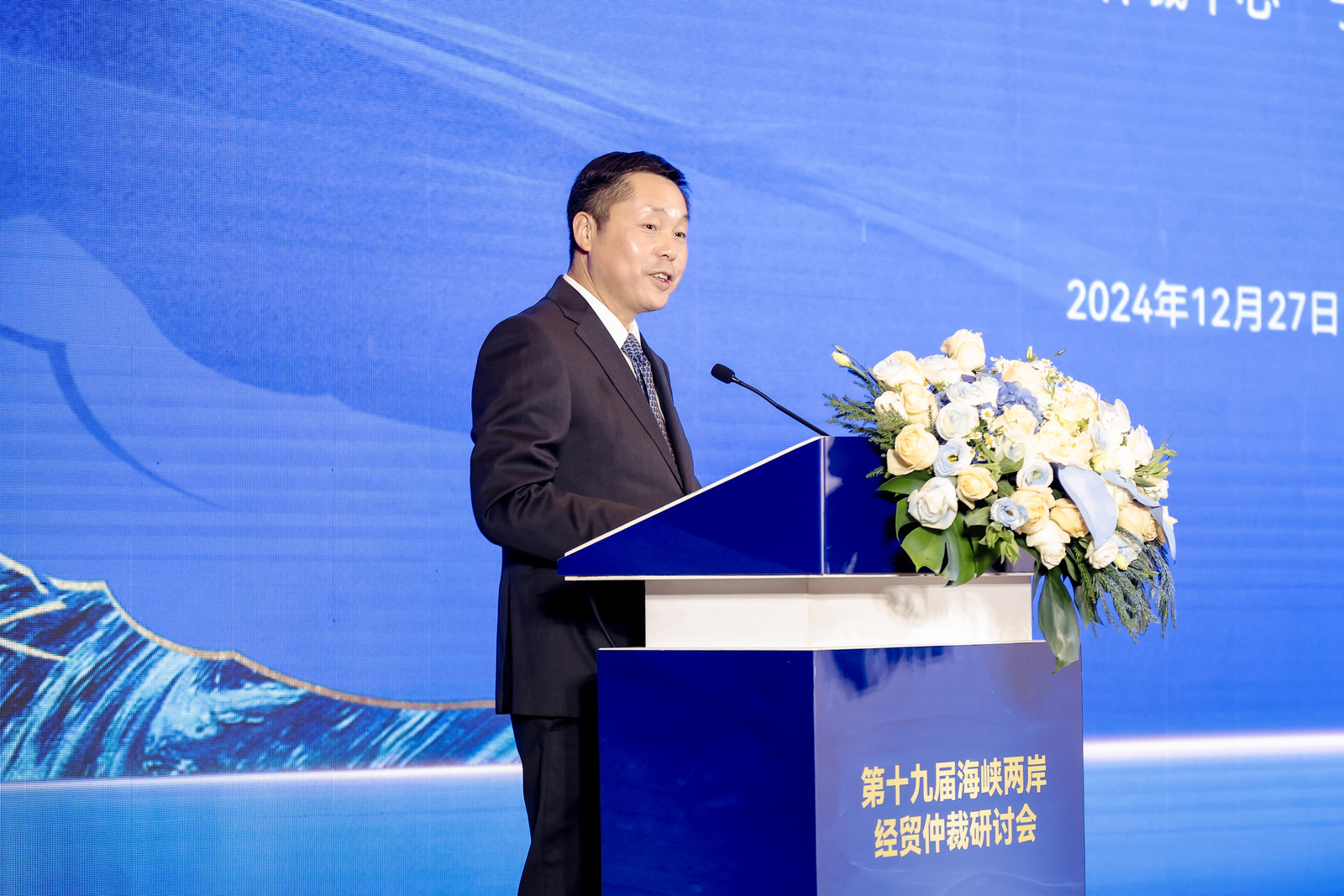
(Wang Chengjie, Vice Chairman and Secretary General of CIETAC, presided over the opening ceremony)
In the panel discussion session, based on the previous practice, the moderators from both the mainland and the Taiwan region will co-chair the discussion. Moderated by Professor Lu Song of China Foreign Affairs University, and Wu Yongqian, Chairman of TAIWAN CAA, the panel discussion featured experts and scholars from both sides of the Strait sharing their insights into three topics: Opportunities and Challenges Faced by Cross-Strait Arbitration Legal Systems, Recognition and Enforcement of Cross-Strait Arbitral Awards, and Experience Sharing of Cross-Strait Construction & Engineering Arbitration Cases.
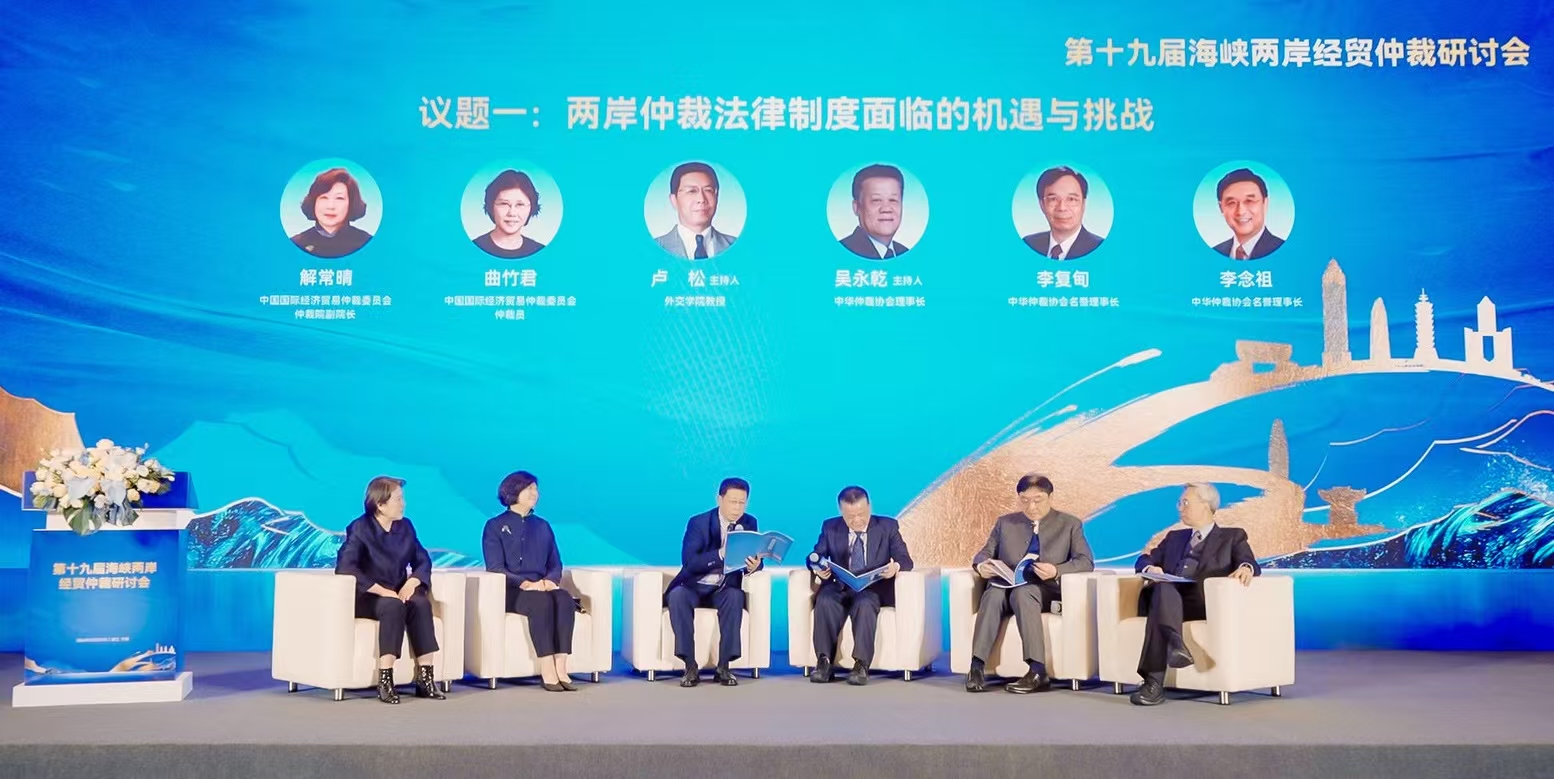
(Panel 1: Opportunities and Challenges Faced by Cross-Strait Arbitration Legal Systems
Seating order from left to right: Qu Zhujun, Arbitrator of CIETAC, Xie Changqing, Vice President of CIETAC Arbitration Court, Professor Lu Song of China Foreign Affairs University, Wu Yongqian, Chairman of TAIWAN CAA, Li Nianzu, Honorary Chairman of TAIWAN CAA, and Li Fudian, Honorary Chairman of TAIWAN CAA)
In the first panel, the guests introduced the latest practice of cross-Strait arbitration legal systems and arbitration rules of CIETAC and TAIWAN CAA, compared the similarities and differences between cross-Strait arbitration legal systems and institution rules, and case management mode and effectiveness, and conducted in-depth exchanges and discussions on further strengthening cross-Strait arbitration legal exchanges and mutual learning, promoting rules and system innovation, and bolstering the prosperous development of cross-Strait arbitration.
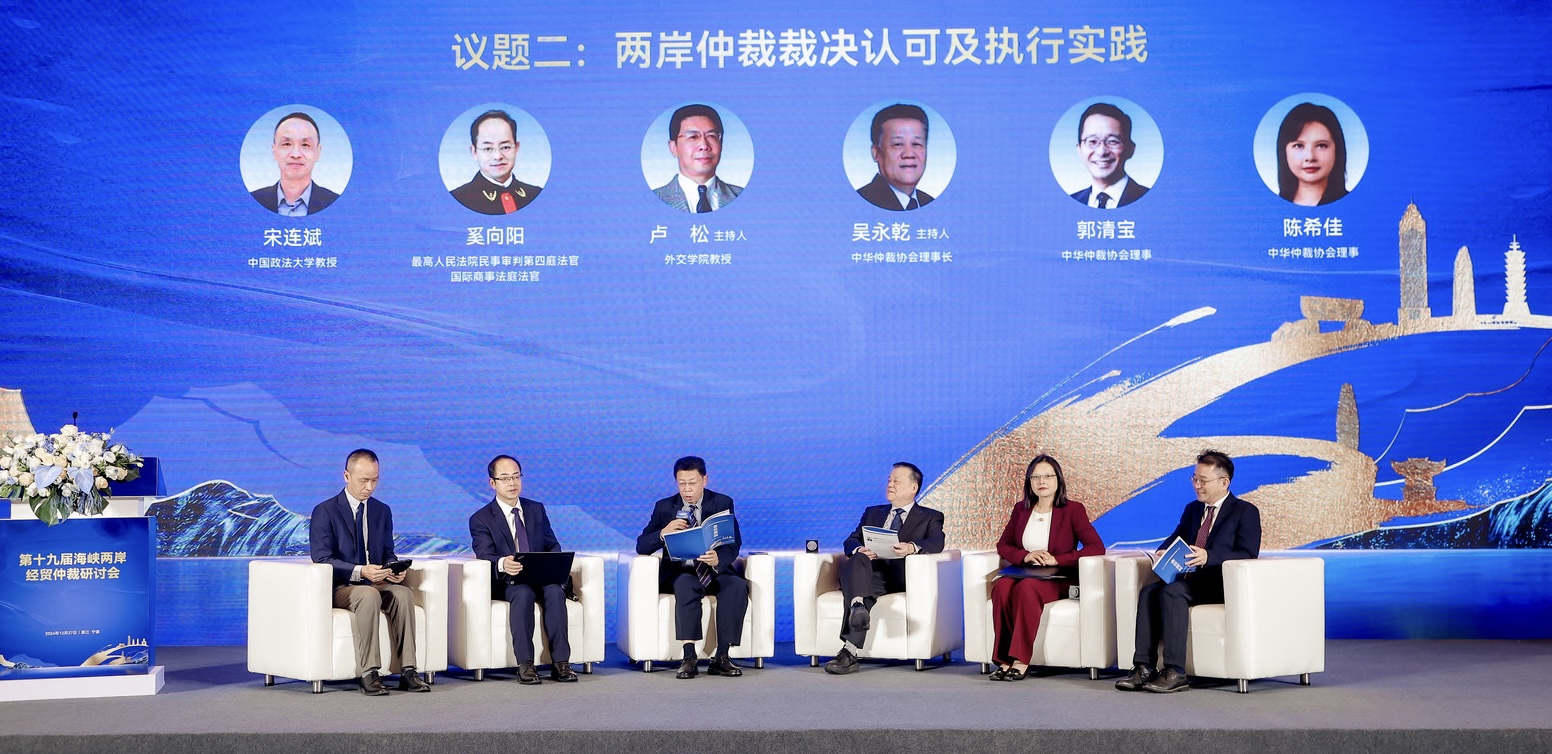
(Panel 2: Recognition and Enforcement of Cross-Strait Arbitral Awards
Seating order from left to right: Professor Song Lianbin of China University of Political Science and Law , Xi Xiangyang, Judge of the Fourth Civil Division of the Supreme People's Court and Judge of the International Commercial Court, Professor Lu Song of China Foreign Affairs University, Wu Yongqian, Chairman of TAIWAN CAA, Chen Xijia, Director of TAIWAN CAA , and Guo Qingbao, Director of TAIWAN CAA )
In the second panel, the guests focused on the recognition and enforcement of cross-Strait arbitral awards, and discussed the legal framework, judicial practice and status of recognition and enforcement of cross-Strait arbitral awards. Their insights helped to further improve the recognition and enforcement system of cross-Strait arbitral awards, optimize the service of arbitration document by cross-Strait arbitral institutions, and provide key tips for cross-Strait parties to participate in arbitration prudently and efficiently.
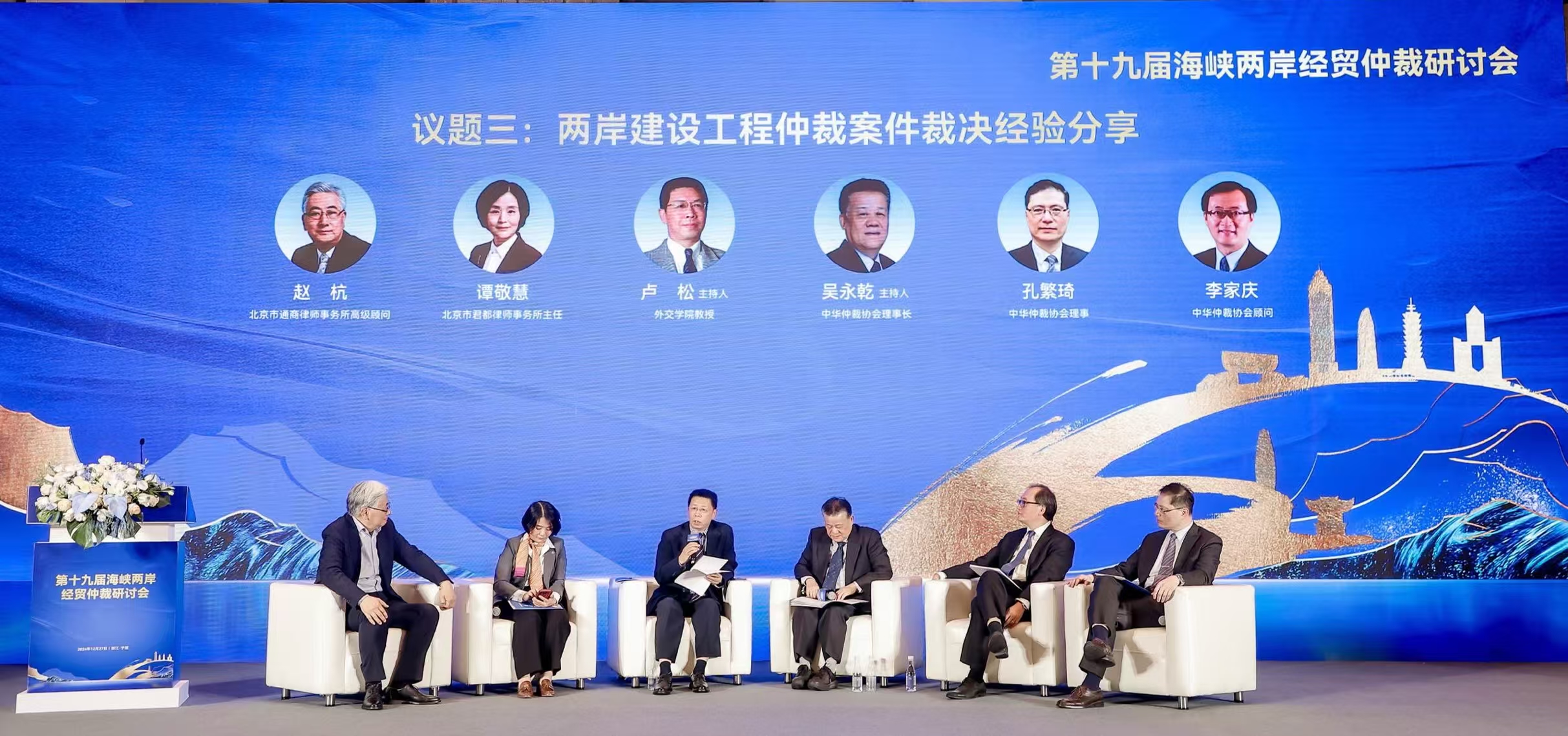
(Panel 3: Experience Sharing of Cross-Strait Construction & Engineering Arbitration Cases
Seating order from left to right: Zhao Hang, Senior Consultant of Commerce & Finance Law Offices ; Tan Jinghui, Director of Jundu Law Firm ; Professor Lu Song of China Foreign Affairs University; Wu Yongqian, Chairman of TAIWAN CAA; Li Jiaqing, Consultant of TAIWAN CAA ; Kong Fanqi, Director of TAIWAN CAA )
In the third panel, the guests shed light on the characteristics of disputes, difficulties in adjudication process and practice of award in cross-Strait construction and engineering cases. Combined with specific arbitration cases, they conducted in-depth discussions on the frontier hot issues including validity of contracts, appraisal proceedings and application of law, summed up the unique advantages of handling construction and engineering cases through arbitration, and provided valuable suggestions and practical references for cross-Strait enterprises to prevent and properly resolve construction and engineering disputes.
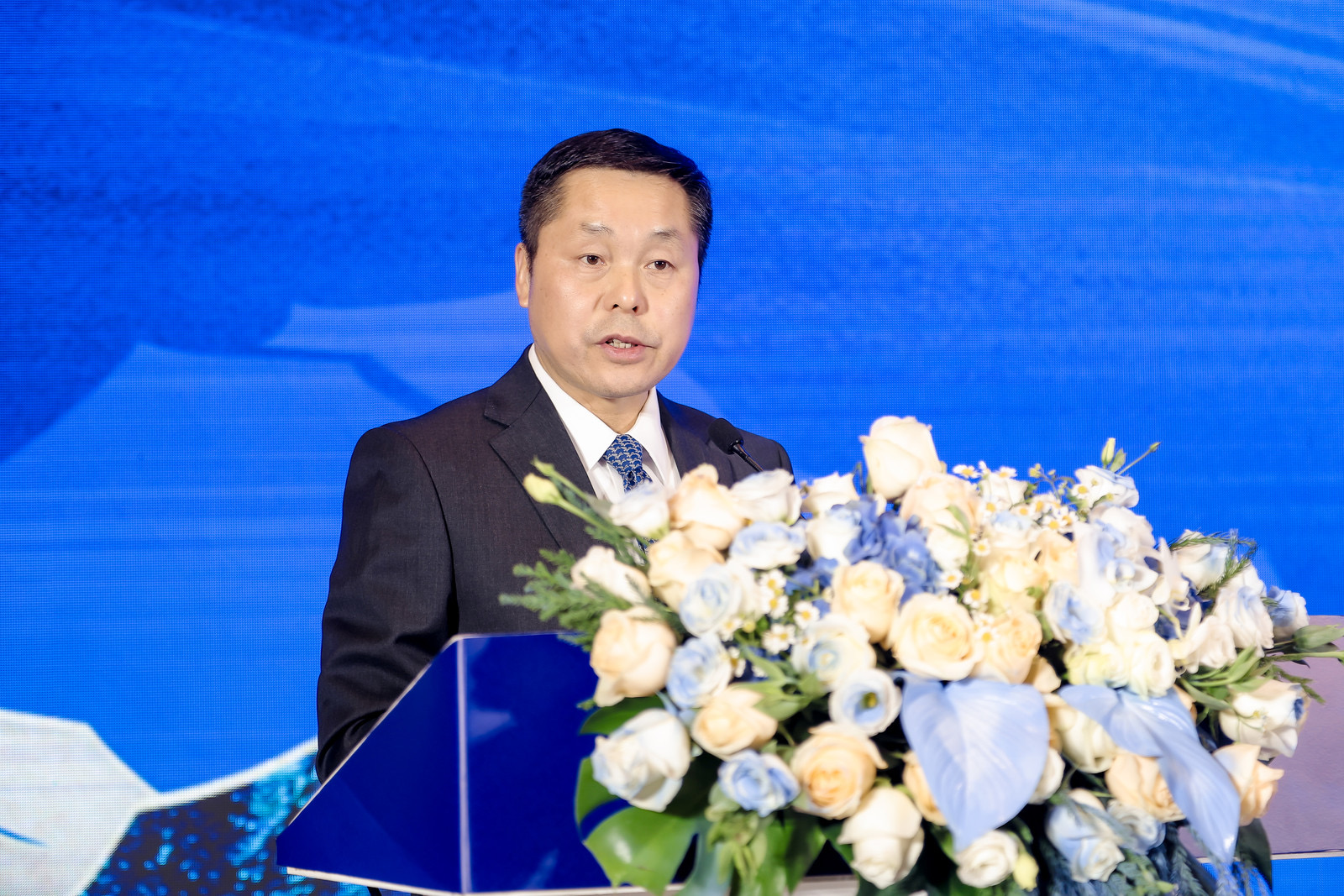
(Wang Chengjie, Vice Chairman and Secretary General of CIETAC, made a closing speech)
The half-day symposium wrapped up in heated discussion and interaction. In his closing speech, Wang Chengjie, Vice Chairman and Secretary General of CIETAC, thanked the moderators and speakers for their wonderful sharing and the strong support from all walks of life on both sides of the Strait for this symposium. He pointed out that CIETAC and TAIWAN CAA have maintained sincere and long-term cooperation, and promoted the development of cross-Strait arbitration and economic and trade exchanges with unremitting spirit. He suggested that the arbitration and legal circles on both sides of the Strait should conform to the development of the times and work together to foster the integration and innovation of the arbitration legal systems; attach emphasis on the recognition and enforcement of cross-Strait awards and give full play to the unique advantages of arbitration; and expand the breadth and depth of cross-Strait arbitration exchanges and cooperation. CIETAC will continue to cooperate with TAIWAN CAA in a pragmatic way to provide a more solid legal guarantee for the sustained, stable and healthy development of cross-Strait economic and trade relations.
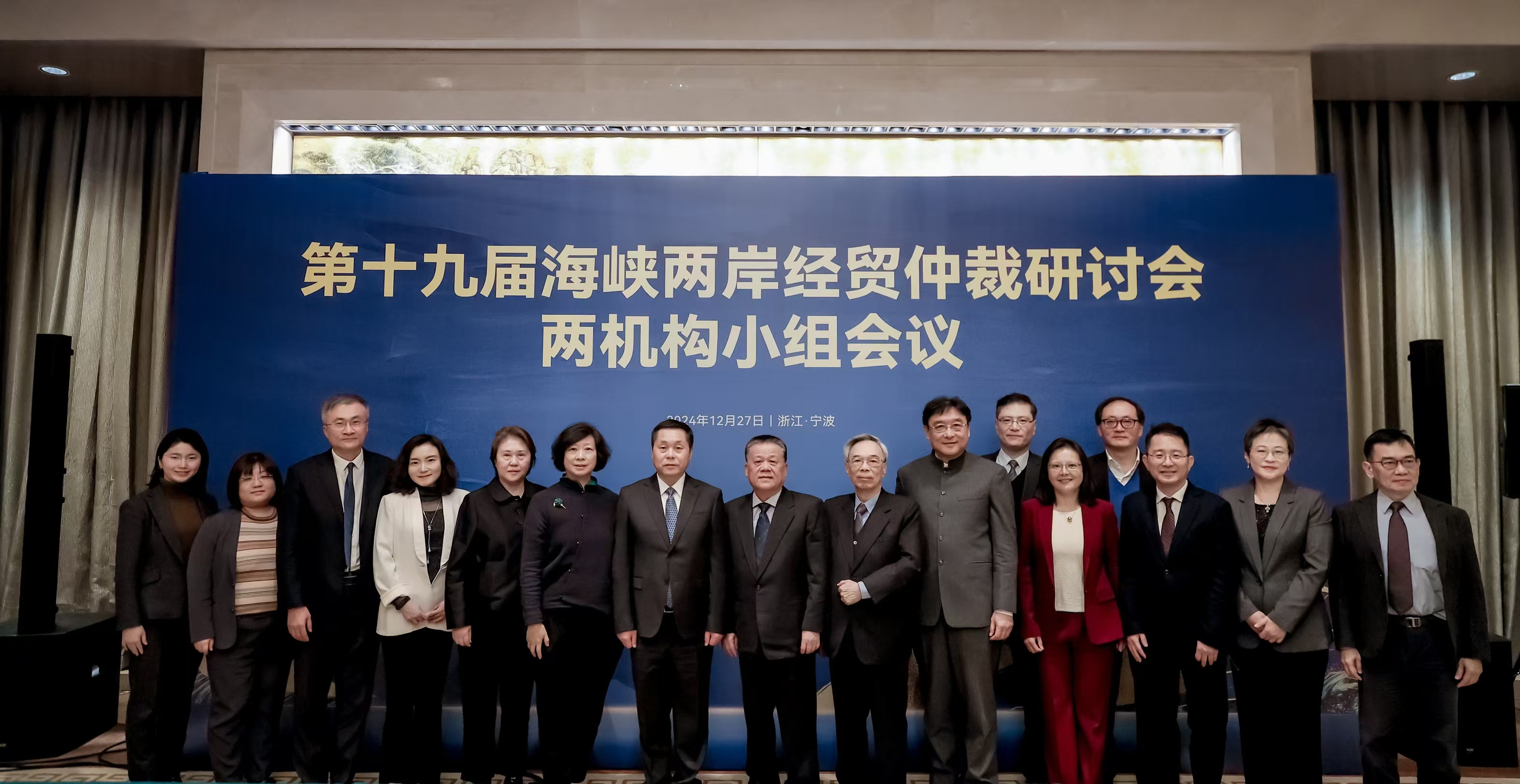
On the same day, CIETAC and TAIWAN CAA held a meeting between the two institutions in accordance with the previous practice, centering on exploring cooperation in the service of arbitration documents, mutual acceptance and recommendation of arbitrators/mediators, and jointly promoting the wide use of arbitration, and reached a number of effective consensuses.
Since 2000, CIETAC and TAIWAN CAA have reached a consensus that “the two institutions will jointly hold the symposium in the Chinese mainland and the Taiwan region alternately”. Through long-term efforts, the Cross-Strait Economic and Trade Arbitration Symposium has effectively played a role in promoting cross-Strait arbitration communication and collaboration and escorting cross-Strait economic and trade exchanges. It has become an important professional platform for cross-Strait arbitration, legal, industrial and commercial interaction and cooperation, and has received positive response and wide welcome from all walks of life on both sides of the Strait, playing an important role in promoting the healthy and stable development of cross-Strait economic and trade relations. In the future, the two institutions will continue to maintain close communication, in-depth dialogue and pragmatic cooperation on the basis of consensus, endeavor to achieve fruitful outcomes, and jointly escort cross-Strait economic and trade exchanges.
